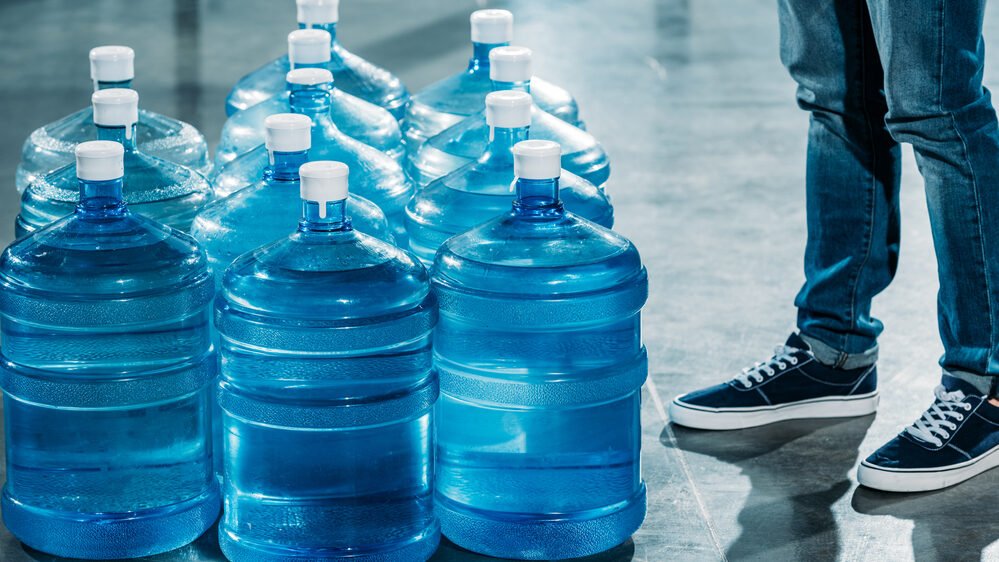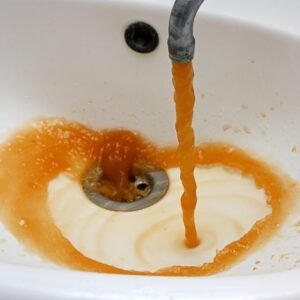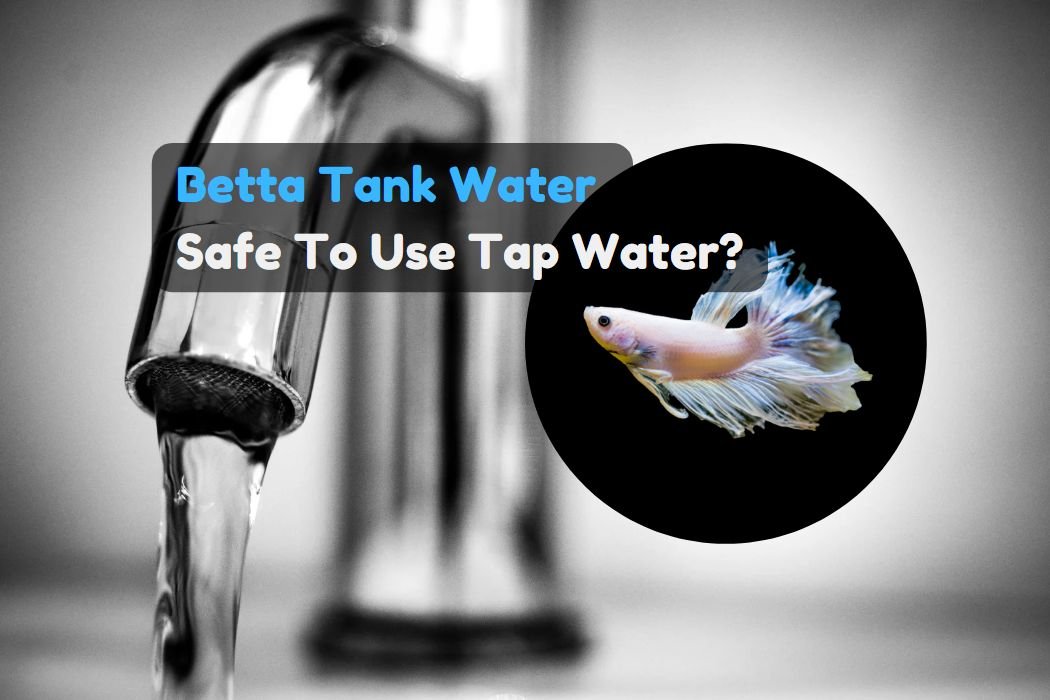Betta Tank Water: Can You Use Tap Water? (or Spring, Distilled, Bottled?)
Hi there, betta lovers! Please read this article before you use tap water for your betta fish tank. For the love of your healthy fish, you should know the correct type of water for optimal tank water.
With so many options, from spring water to bottled water, distilled water, and tap water, we understand the confusion. But don’t worry. In this article, we will break down the pros and cons of each option and help you get to the ideal betta fish water.
You must avoid doing things that can quickly ruin a good aquarium environment. Once you learn this information, you can ensure your fish is swimming in safe water.
To quickly answer the question, “can you use tap water for betta fish?” the short answer is: No, you should not just use regular tap water as it is. However, if you treat it properly with a water conditioner and check for chemicals, pollutants, and other water parameters, the answer can be: Yes. It depends on your tap water’s chemicals (of which you may be blissfully unaware). Let’s dive in.
Selecting the Best Type of Water for Your Betta Fish Tank (Tap Water vs. Spring Water vs. Bottled Water vs. Distilled Water vs. Betta-Specific Water)
Do you want to decide on the best water source for your tank? Let’s look at the options.
Tap Water: Advantages and Disadvantages

Can betta fish live in tap water? It’s safe for humans to drink, so we may falsely believe it’s OK for fish to swim in, but untreated tap water may be toxic due to chlorine and other trace chemicals. You should treat tap water before filling your tank, as you want to avoid sending your poor fish on a one-way swim to fish paradise.
Pros:
- Cheap and convenient
- Most tap water pH falls within a range of 6.5 to 7.5, which is suitable for bettas
Cons:
- Tap water usually contains contaminants such as chlorine, metals, and gasses that can be deadly to your fish.
- Chloramine does not evaporate from the water and is toxic to fish.
- You may need to use a conditioner or water filtration system to remove chemicals and contaminants from the water.
- Requires you to check the temperature and adjust the faucet accordingly, as bettas are sensitive to temperature (75-82 degrees Fahrenheit is the ideal range)
Spring Water: Is it a Suitable Choice?

Spring water is groundwater that may come to the surface from a spring or aquifer, and layers such as sandstone, limestone, clay, gravel, and sand naturally filter it. Bottled spring water is spring water that has been sample-tested and checked to ensure it doesn’t contain any harmful contaminants and is then sold for humans to drink. The FDA and EPA set the safety standards.
The advantages of spring water are that it is naturally purified and filtered and doesn’t contain chlorine. However, you may want to check the pH levels and other water parameters first to make sure it is safe for your betta fish, which is a pH range between 6.5 and 7.5, and outside of this range may be dangerous.
Pros
- Cheap cost: you can get a gallon of bottled spring water for $1-2
- easily available
- naturally pure water
- doesn’t have chlorine
Cons
- more expensive than tap water
- you may need to heat it because there is no faucet to control the temperature
Bottled Water: Is it Necessary?

Regular bottled water has undergone an extensive purification process to remove chemicals and contaminants, which may include reverse osmosis and UV light treatment to kill potential bacteria, parasites, or viruses. Bottled water follows strict safety standards to make it OK to drink people.
Pros
- reverse osmosis water is pure
- very reliable
Cons
- more expensive than spring water and tap water
- Bottled water produces a lot of plastic bottles that need to be disposed of or recycled, and there is a risk they end up in the environment as a pollutant with negative impacts.
Can You Use Distilled Water for Bettas?

Distilled water is water that has undergone the distillation process. Distillation boils water until it becomes vapor which is then cooled, turned into liquid, and collected. Once water vapors to steam, it is pure water molecules in a gas form, which purifies it from contaminants, minerals, or pollutants. However, the molecules come in contact with gases in the air, such as CO2, so the distilled water may not have the exact pH level of 7 as expected.
Pros
- purified
- free from contaminants
Cons
- Low availability. You may not find it at your local grocery store.
- More expensive than bottled, spring, and tap water.
Betta-Specific Water from the Store
If you want to avoid messing up the water formulation and checking for this and that, you can always go to the aquarium store and buy betta-specific water. It’s the perfect water for betta fish tanks, as you only need to consider the temperature and acclimate your fish to the new water.
Betta fish need aquarium water with optimal pH levels, so it doesn’t harm your fish, and betta-specific water is sample-tested to ensure it is safe for betta fish to live in.
Pros:
- No need to worry about water test kits or water conditioning
- perfectly optimized betta water
Cons:
- Less easy to buy than the other options as you need to go to specific stores to get it or order online.
- More expensive than the other alternatives
You’re weighing the safety, risks, costs, and convenience against the other options.
Maintaining Good Water Parameters in Betta Fish Water

It would be best for your betta to always strive to maintain the best fish tank environment. Here are some key factors you can consider before you unleash your fish into their new world:
- Make sure the betta fish water conditions are optimal.
- Test the water quality regularly for oxygen levels, pH levels (6.5 to 7.5), and chemicals such as ammonia and nitrate.
- Check that the water temperature is 75-82 degrees Fahrenheit.
- Do partial water changes often to maintain water conditions.
- Consider water treatment if the water is dirty or contaminated.
- Keep the tank clean. You can change the water gradually, clean individual items in the tank one at a time, or use another tank, container, or water bag to keep your bettas while you clean the main tank.
- Always do the proper acclimation when introducing your fish to new water or changing tanks.
That’s it for now. As we equip you with new information, you can make better decisions for the water you use for your betta aquarium, keep them healthy and continue swimming for a long time. I hope you enjoyed this article. Thanks.
Frequently Asked Questions About Water for Betta Fish
Can betta fish survive in tap water?
Bettas can survive in tap water if properly treated and free of harmful contaminants. It is essential to regularly test the water quality and maintain the proper pH range to ensure the well-being of your fish.
Is spring water a good choice for betta fish?
Spring water can be a good option for betta fish as it is often naturally purified and free of contaminants, but it is vital to check that the water conditions are suitable for your bettas.
Should I use bottled water for my betta fish tank?
Bottled water is not necessarily required for a betta as long as you treat the tap water correctly. If you worry about tap water quality and don’t know how to treat it, bottled water, spring water, distilled water, or fish-specific water from the store can be good alternatives. But also consider the cost and environmental impacts of plastic bottles.

